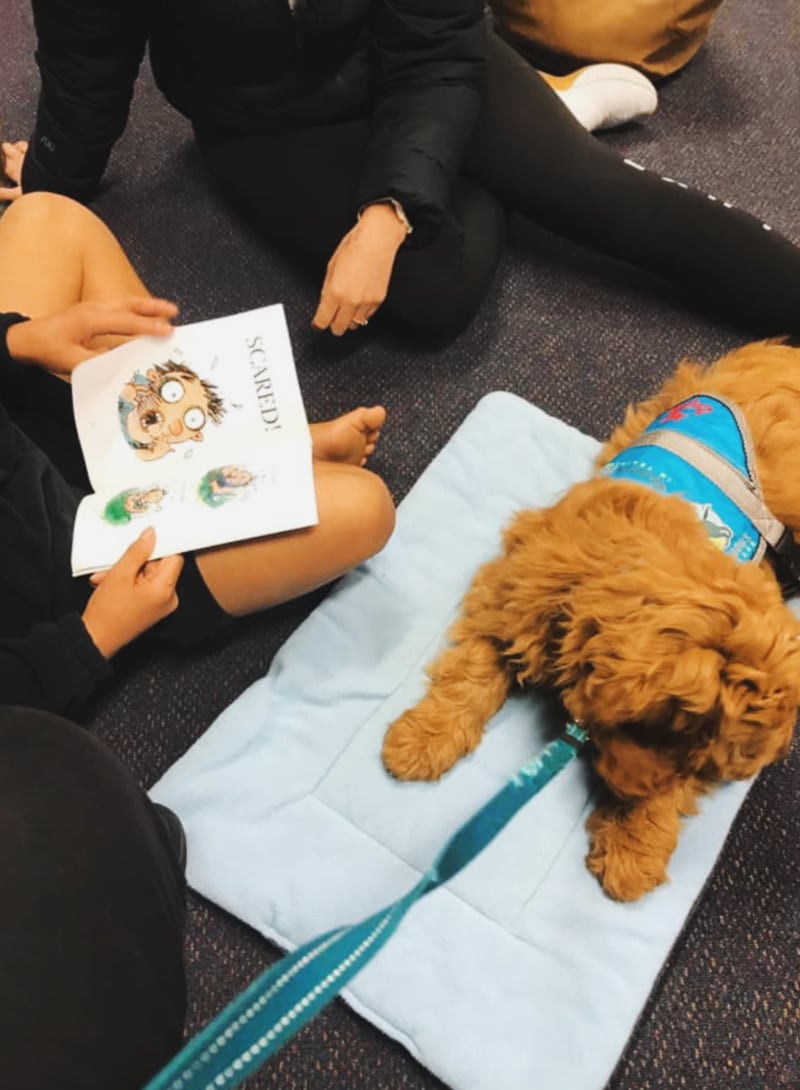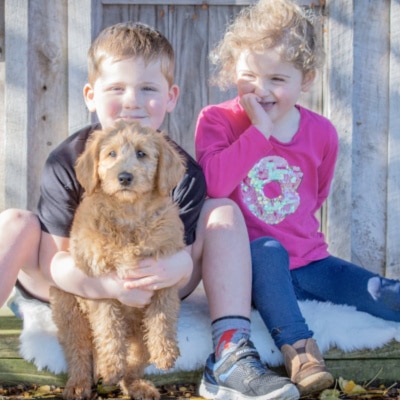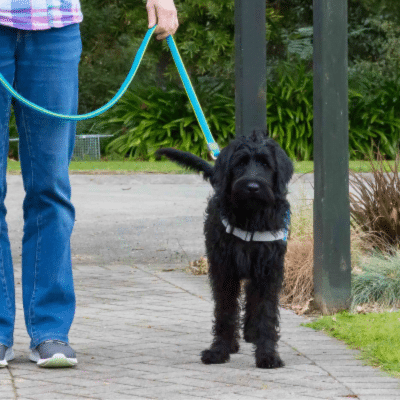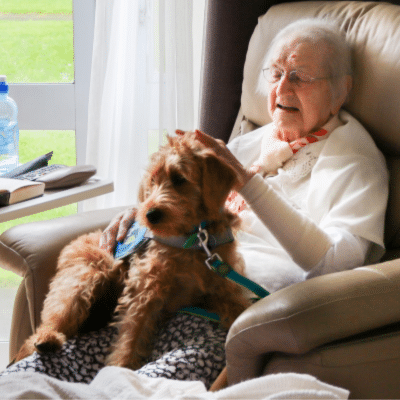Reading Therapy Dogs
Our reading therapy dogs provide support by helping the reader feel less nervous and self-conscious as they are reading to a furry friend.
Reading can be a difficult skill to develop for many children and adults as emotions such as apprehension, stress, and anxiety can be an obstacle.
Our reading therapy dogs provide support by helping the reader feel less nervous and self-conscious as they are reading to a furry friend.
Over time the therapy dog provides comfort, encourages positive social behaviours, increases self-esteem, motivates speech and inspires children and adults to enjoy reading.
Implement A Reading To Dogs Program In Your School
The reading to dogs programme can be implemented by any school or assisted learning education provider, and can be achieved by a teacher sourcing a suitable puppy from our programme as their own pet for this purpose, or by employing the services of a facility therapy dog.

Train

Support

Empower
How Does It Work?
The teacher selects the students who would benefit from reading to the therapy dog and then manages the session. These programmes suit children who have difficulty reading, lack the confidence to read out loud, as well as children who struggle to focus on reading tasks.
The appropriate reading material is supplied by the teacher and sessions are kept short, between 10 to 15 minutes in duration. The therapy dog enters the room and remains on the lead under the direct control of the owner/handler. At the start of the session, the dog is introduced to the child. For example ‘This is Remy, he’s a labradoodle and he loves stories about trains.’ Tailor the sentence to suit the type of book that interests the child.
Next, the teacher facilitates the session by getting the child and the dog to sit on the floor together, so they can chat. The child is encouraged to explain the illustrations to the dog, along with the meaning of words and phrases. The teacher can also use the time to encourage children to speak up so the therapy dog can hear them clearly.
If the dog falls asleep, the student is told “he is just closing his eyes, so he can concentrate on your story”. If the dog becomes active, the student is told “Look, he is really enjoying you reading to him”. At the end of the session, the student can pat the dog as a reward.
The child begins to look forward to reading to their new friend, the therapy dog. Each reading session provides comfort, encourages positive social behaviours, increases self-esteem, motivates speech and inspires young children to enjoy reading.
OTHER
Therapy Dog Roles
Disability Support Dog
Therapy Dog Role
Emotional Support Dog
Therapy Dog Role
Facility Therapy Dog
Therapy Dog Role



